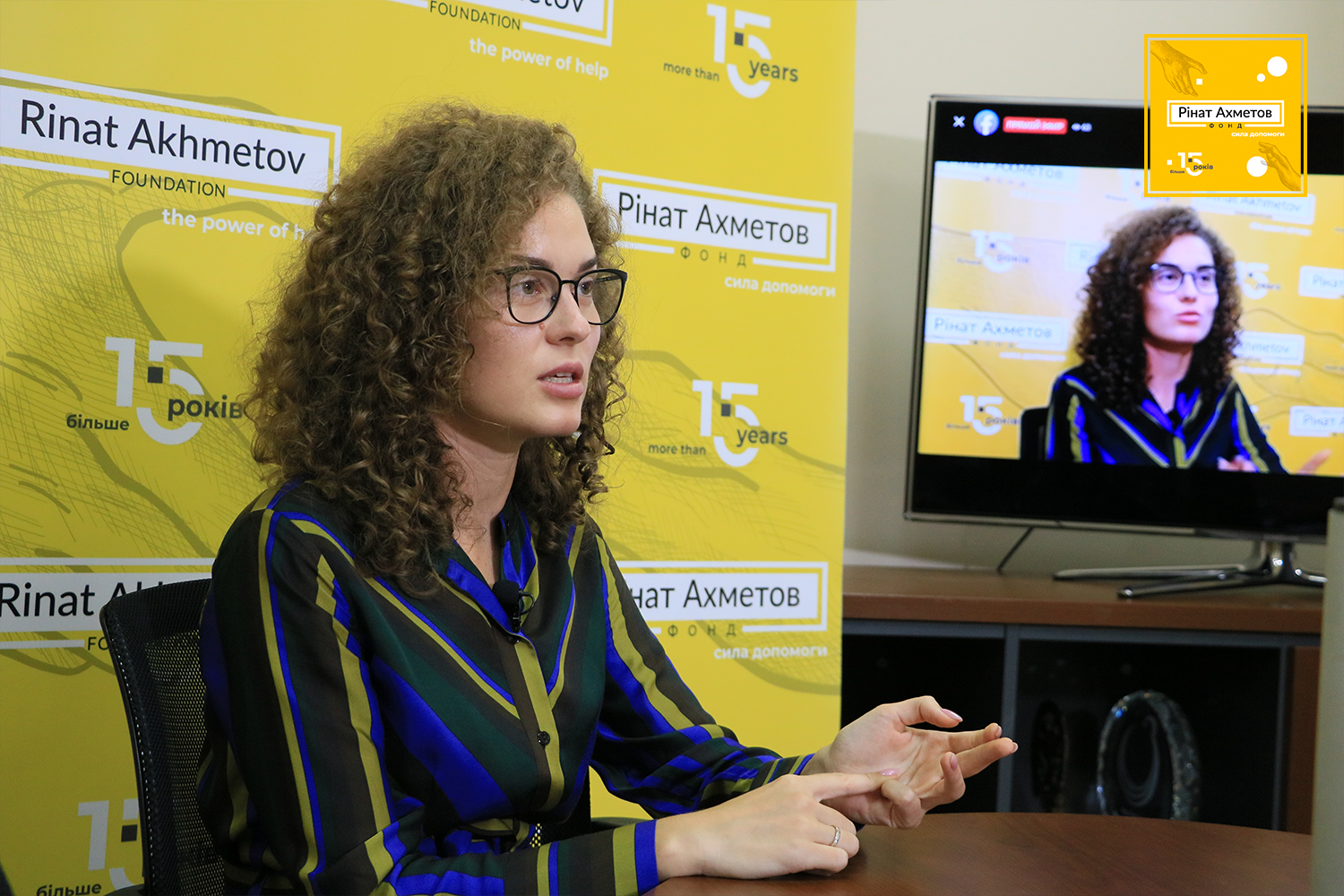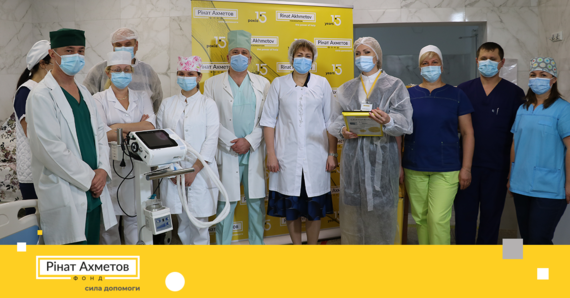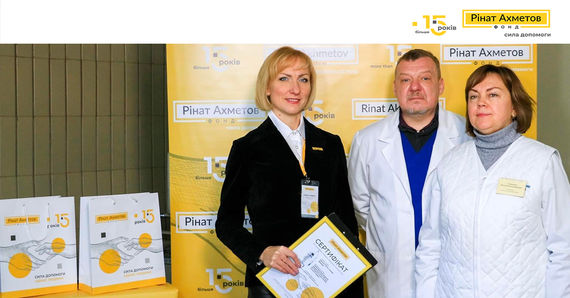The Project Ask the Doctor of the Rinat Akhmetov Foundation: Why Coronavirus is Dangerous for Patient’s Liver

The project Ask the Doctor of the Rinat Akhmetov Foundation continues a series of live broadcasts about COVID-19 with key healthcare experts of the country. What does harm to the liver during and after COVID-19? How to protect yourself? Answers to these and other questions in the next episode of the online project Ask the Doctor are given by Vitaliy Yanchenko, who is a hepatologist, an infectious disease specialist, a board certified doctor, a Candidate of Medical Sciences, a consultant on hepatology and infectious diseases of the Academy of Medical Sciences and the Ministry of Health, and a researcher at Hromashevskyi Institute of Epidemiology and Infectious Diseases.
According to the expert, human liver is particularly vulnerable to the coronavirus.
‘In case of COVID-19, one of the first consequences can be damage to the liver. Heavy liver damage may occur in cases of cytotoxic reactions during severe disease manifestations such as lung damage or hypoxia. Coronavirus is a multi-organ pathology similar to sepsis. Inflammatory processes and attack of antibodies on person’s own liver, including an attack on vessels, develop in a human body. Thrombosis, hypoxia in the liver and the so-called cytolysis syndrome occur then. This means that a cell loses its membrane and the enzymes present in it are poured out. As a result, the liver tissue melts,’ explained Vitaliy Yanchenko.

He also added that despite the threat, human liver is the only organ that has a unique ability of self-recovery or self-healing. Therefore, so far, no proven cases of acute liver failure during COVID-19 have been reported. However, you should not be negligent about your health because of this factor.
‘We are dealing with COVID-19 and it is a very dangerous disease. If the liver is affected, then the kidneys, the thyroid gland, the immune system and the brain will be affected too. Therefore, liver damage contributes to the severity of the condition in case of the coronavirus, and a patient may even die from multi-organ failure,’ said the doctor.
The expert of the project Ask the Doctor also explained how to monitor the health condition of one of the most important organs.
‘First of all it is necessary to make a liver function test. If the test results show values that are at least twice as high as normal, this means a mild degree of damage. If more than twice – a medium degree. And if the values are ten times higher or more – it means a severe degree. Then a person must be hospitalized. Otherwise, this threatens to result in both necrosis of the liver and deterioration of the general condition during COVID-19,’ Vitaliy Yanchenko added.
He explained that one of the first symptoms of liver damage is a strongly manifested general weakness. This is because the body stops receiving the required amount of proteins and hormones.
‘There can also be heaviness in the right hypochondrium. However the main symptom is weakness and this is when you need to turn to the doctor,’ the expert emphasized.

Almost 13 million people have watched the project Ask the Doctor of the Rinat Akhmetov Foundation. Among the guests of the previous broadcasts were Kateryna Amosova, a cardiologist, an associate member of the National Academy of Medical Sciences of Ukraine, a member of the European Society of Cardiology; Yevhen Komarovskyi, a famous paediatrician of the country; Serhiy Komisarenko, a biochemist and researcher; Oleksandr Zaika, an immunologist of the Public Health Centre of the Ministry of Health; Oleh Chaban, a psychiatrist, a Doctor of Medical Sciences, a professor; Serhiy Dubrov, the President of the Association of Anaesthesiologists of Ukraine, and other experts.
You can watch recordings of weekly online meetings with doctors who talk about coronavirus symptoms, about drugs prescribed to patients with confirmed COVID-19, nutritional preferences for patients, the latest global trends in coronavirus treatment and many more topics, on the Rinat Akhmetov Foundation’s Facebook page, as well as on its YouTube account.
.png?content_type=image%2Fpng&disposition=inline%3B+filename%3D%22Zaglavnaya+%25281200h628%2529.png%22%3B+filename%2A%3DUTF-8%27%27%25D0%2597%25D0%25B0%25D0%25B3%25D0%25BB%25D0%25B0%25D0%25B2%25D0%25BD%25D0%25B0%25D1%258F%2520%25281200%25D1%2585628%2529.png)



